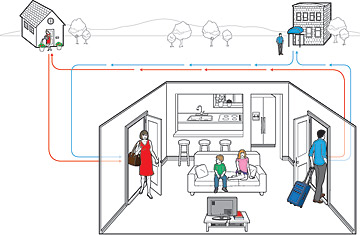
(2 of 2)
And that, according to divorce lawyers and therapists, can be the problem. While nesting sounds civil, it can retard the process of separation, causing more conflict and preventing the former partners from starting over and the kids from getting used to the new dynamic, says Michael Flannery, a law professor at the University of Arkansas who has studied the practice. "It's better for the child developmentally to build a relationship with each parent independently," he says, adding that having parents who cooperate is more important than where they cooperate. Nesting is also, obviously, untenable when one partner starts a new family.
Nevertheless, parents who managed to master the arrangement for even a short period after their marriage degenerated say it was worth it. The Mardens' daughter Kamaria was 14 when her parents split and was finishing high school by the time they gave up their 3½-year experiment. "I think it made my experience of the separation a little easier," Kamaria, now 20, says of her parents' tag-teaming system, which ended when Elizabeth got an apartment closer to the kids' school. "I'm very close to both my parents now."
And nesting offers insights that parents can't get anywhere else, especially about what it's like to shuttle between houses. So when their kids find they left one shoe and half their homework at the other parent's home, they can empathize.
